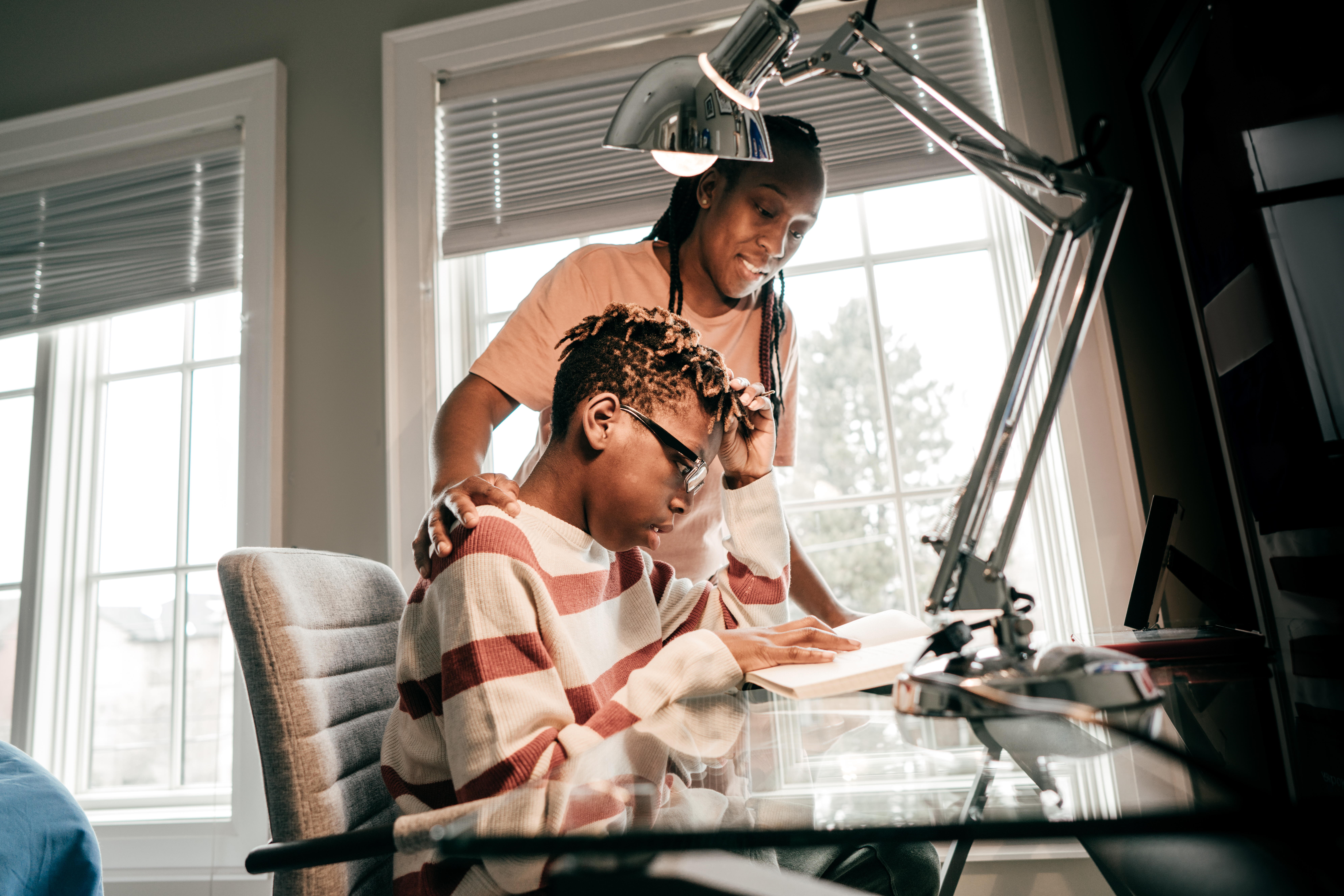I was talking to a friend recently who told me about one of her co-workers who lives in a small apartment with his spouse and two young children. During video chats he usually shuts himself in the bathroom, sitting on the toilet with the cover down. It’s the only quiet place he can find to concentrate.
The global pandemic has forced us all to change the way we live and work and, with schools closed, it’s been especially difficult for parents. That’s why Qualtrics teamed up with Angela Duckworth — the author of Grit, founder and CEO of the education non-profit Character Lab, and one of the world’s leading psychologists — to address parents’ questions during this pandemic. All of the episodes can be viewed at qualtrics.com/QandA. We have summarized a few of the episodes below showing how behavioral science can help us — and kids — thrive, even in the midst of a pandemic.
Resilience
One parent wrote in noting that it felt like so many of their friends seemed to be coping with the pandemic better than they were. This parent then asked what makes one person so much more resilient than another.
Duckworth responded by first defining resilience as bouncing back from challenge and adversity, and then noted that becoming more resilient requires a shift in mindset. Behavioral science teaches that stress can be either enhancing or debilitating. When crises happen, our opportunity is not to minimize the stress we’re feeling, but rather to optimize it.
Experts recommend a few ways to optimize stress:
- Take care of yourself physically. Take time to restore yourself by getting enough sleep, eating better, and scheduling less. This may seem like obvious advice, but it’s often overlooked.
- Acknowledge your stress to yourself and to your kids. One way to do that may be to go around the dinner table at the end of the day and ask everyone to rate their stress level on a scale of one to 10. If someone is feeling particularly anxious, help them identify what may be causing the stress and what makes them feel better. This helps name and normalize feelings — and it helps your kids to do the same.
- Optimize stress by shifting the paradigm. If one is able to see the crisis as an opportunity to grow, then it opens up a whole new world. For example, you may choose to learn to cook, use new technology, or deepen relationships with others. Instead of allowing stress to weigh you down, channel it in a way that makes you more resilient.
The episode on resilience can be found here.
Disappointment
So many children have seen things they care a lot about completely disappear. That includes graduations and proms, school plays and birthday parties. Many parents asked about the best way to respond to a child’s disappointment over missing something they had long looked forward to and would never get back.
In this episode of Q&A, Duckworth noted that as parents, when we see our children in pain, one of our first instincts is to try to make it go away. Often, that manifests itself by our trying to provide perspective or give advice. Rather than jump right in with a solution, however, one thing parents may try is the practice of supportive listening.
This means taking time to simply listen and understand. If they tell you they are sad about missing an experience, listen and then repeat back to them what they’ve said. Something like, “What I’m hearing you say is that it’s really hard for you to miss your graduation.” And then continue to listen as they share their feelings. It may sound corny and stilted, but it works.
Instead of trying to fix things, supportive listening lets kids work through their feelings. These are real emotions and, as a parent, you can validate their grief. There will come a time after the grieving process when you can start to discuss creative alternatives and solutions to these challenges. But at the beginning, your kids need you to listen. They need to feel heard, and that means supportive listening.
The full episode on handling disappointment can be found here.
How hard to push kids academically
Many parents have asked about how hard to push their kids academically right now. There is so much stress, uncertainty, and doubt. They worry that kids are on their phones all day. So what should parents do?
It’s important to acknowledge that there is no right answer, per se. Different parents handle things differently and each child is unique, but one principle to think through is that while we tend to believe that success comes from hard work, it often originates from working really hard at something that you are passionate about. While your children have more free time right now, help them use it to discover things they love. Discovering and developing new passions will help them find areas they want to dedicate a lot of time and effort to. After all, Isaac Newton was a student at university when the Great Plague of London forced him to leave school and stay home with his family. It was during his own version of quarantine that he invented early calculus.
Many parents will choose to set screen time limits for their kids, but maybe those limits are more liberal than you might normally do. Make it easier for kids to discover something they like to do and get creative. You, and they, may be surprised at the passions they discover.
The full episode on how hard to push kids academically can be found here.
Maintaining peace when everyone’s living on top of each other
With so many families “trapped” together in quarantine, it’s easy to see emotions run unchecked. In response to one parent’s question about their family “living on top of each other with little reprieve,” Duckworth talked about how to help them maintain some positive relationships. She shared that emotions are contagious. A mountain of psychological research suggests that positivity can spread from one person to the next, just like a virus. Negative emotions are equally contagious so it’s important to be mindful of the way our emotions and others impact the greater group.
Research suggests several ways to cure your own bad mood. Two we discussed are going to the source of the problem and exercising gratitude. Regarding the first, it helps to identify the source of the problem and try to fix it. For example, if your bad mood is a result of limited or no exercise, then get creative with a solution that fits your environment. Take quick walks throughout the day, have a spontaneous dance party, lunge around the kitchen as you prepare dinner — do whatever works for you. Get creative with your problem-solving, and get to the heart of the issue.
A second way is to exercise gratitude. Take a few moments each day to draw attention to what is going well. Every morning, Duckworth says, she practices the “three blessings” exercise, where she identify three blessings in my life that happened the day before. This boosts your mood and helps you focus on what really matters and reminds us that no matter how bad things may be, it is still possible to find things about which to be grateful. The science behind gratitude is clear. It improves your mood, helps you be a better person, and increases your desire to do things for other people, which, incidentally, is another way to banish the blues.
The full episode on maintaining peace while in quarantine can be found here.
As parents navigate this new normal, we hope this Qualtrics / Character Lab partnership will help parents get answers to their questions. Please submit any questions you have at Qualtrics.com/QandA and view all the episodes there.
Follow us here and subscribe here for all the latest news on how you can keep Thriving.
Stay up to date or catch-up on all our podcasts with Arianna Huffington here.


